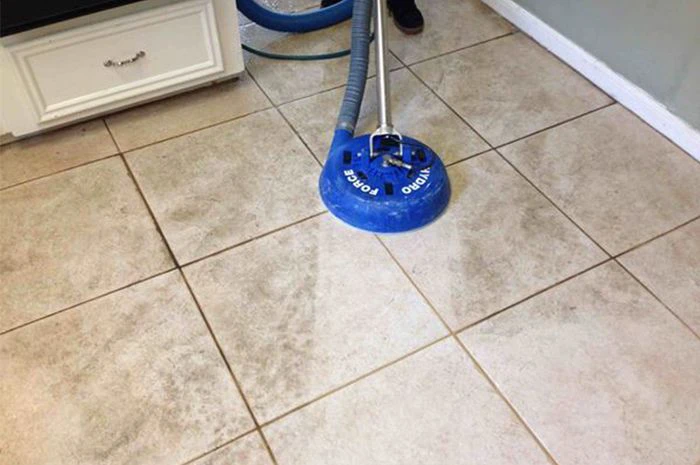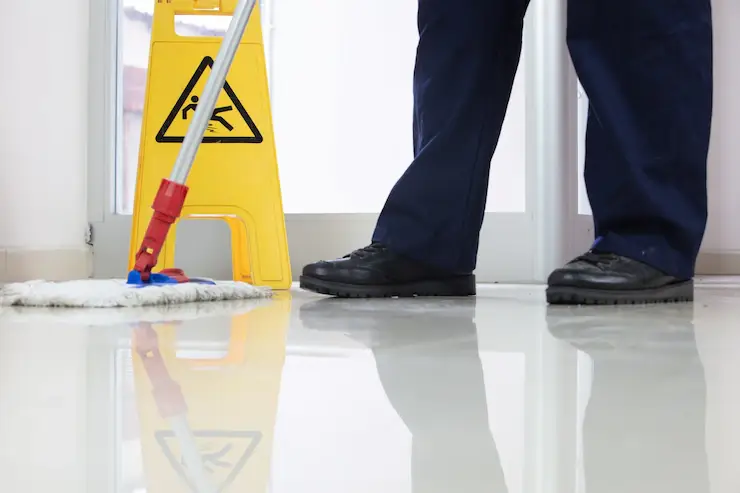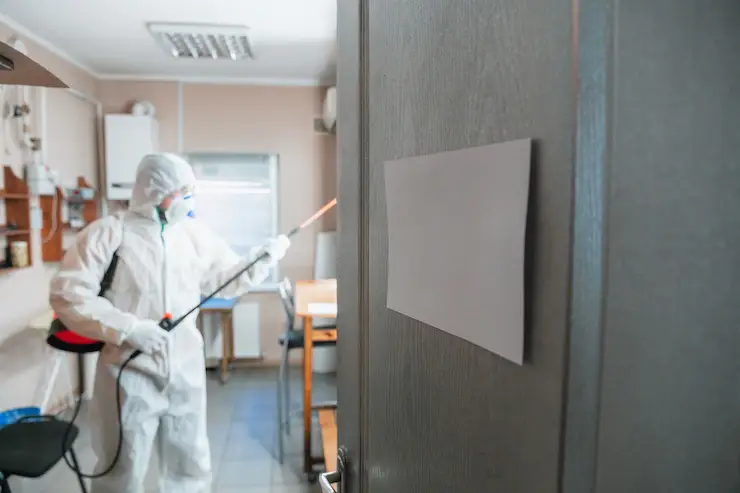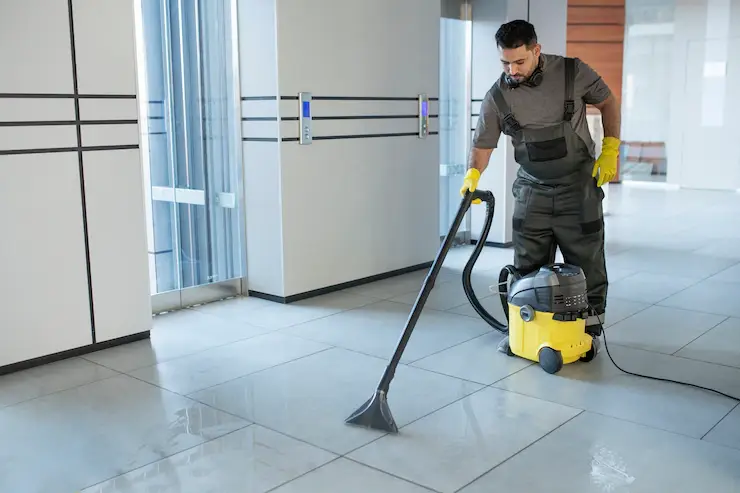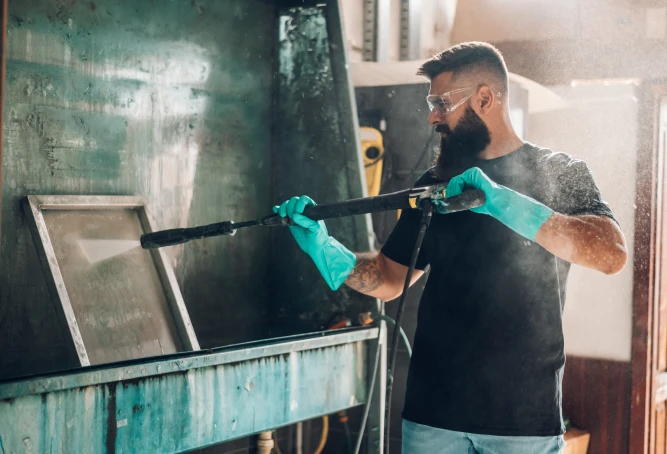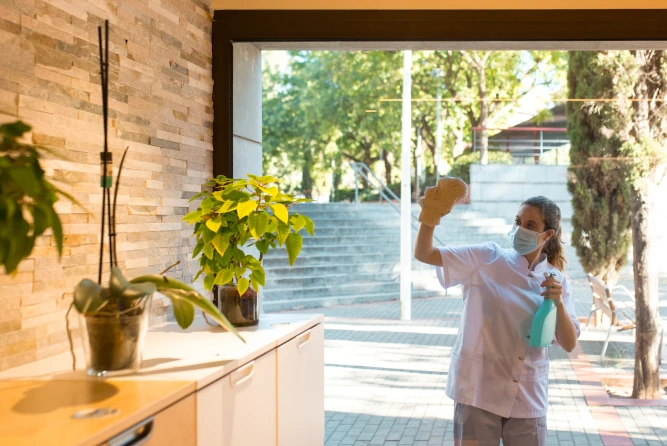Cleaning services have become increasingly popular in areas like Guelph, Cambridge, Waterloo and Toronto. If you are planning to opt for the services for the first time, chances are you will come across two distinct categories- residential and commercial. Residential cleaning services cater to homes or such domestic dwellings. Commercial cleaners, on the other hand, work in commercial spaces like offices, medical buildings, post-construction areas and restaurants. The differences, however, go beyond that. Here is a detailed comparison of residential cleaning vs commercial cleaning so you can choose the right one for yourself.
Residential Cleaning vs. Commercial Cleaning
Professional cleaning services leave you with a clean, hygienic and organized space, whether it’s a home or a commercial space. They, however, before on the basis of the facility the team, the equipment they use and the methods they implement. They both have the same goal with some significant differences between them. Let’s shed some light on the comparison.
What is Residential Cleaning?
Residential cleaning is a process of cleaning domestic dwellings such as homes. A residential Cleaner can be a part of a cleaning company or work independently. they are trained to clean sanitize and organize residential properties while maintaining their original aesthetics.
Who are Residential Cleaners?
Residential cleaners are professionals who have the training and expertise to make your room look good at your convenience. Let’s say you want your apartment in Guelph cleaned quickly before your guests come in. Residential cleaners are the right qualified professionals to help you with that.
Duties of a residential cleaner:
General Cleaning:
- Dusting surfaces, furniture, and fixtures.
- Vacuuming carpets, rugs, and upholstery.
- Sweeping, mopping, and polishing floors.
- Cleaning windows, mirrors, and glass surfaces.
Kitchen Cleaning:
- Cleaning countertops, sinks, and backsplashes.
- Washing dishes or loading/unloading the dishwasher.
- Cleaning appliances (e.g., stove, oven, microwave, refrigerator).
- Wiping down cabinets and drawers.
Bathroom Cleaning:
- Scrubbing and disinfecting toilets, showers, bathtubs, and sinks.
- Cleaning mirrors and glass surfaces.
- Wiping down tiles and fixtures.
- Emptying and sanitizing trash bins.
Bedroom Cleaning:
- Changing bed linens and making beds.
- Dusting furniture and cleaning surfaces.
- Organizing and tidying up personal items.
Living Areas:
- Dusting and polishing furniture.
- Cleaning electronics and entertainment centers.
- Organizing and decluttering spaces.
Laundry:
- Washing, drying, folding, and ironing clothes.
- Changing and laundering linens and towels.
Specialized Tasks:
- Deep cleaning tasks such as carpet shampooing, upholstery cleaning, or window washing.
- Seasonal cleaning tasks like cleaning gutters or sweeping chimneys.
- Cleaning and organizing closets, pantries, or other storage areas.
General Maintenance:
- Reporting any damages or necessary repairs to the homeowner.
- Restocking cleaning supplies and materials as needed.
Customer Service:
- Communicating with homeowners to understand their specific cleaning needs and preferences.
- Ensuring satisfaction with the cleaning services provided.
Safety and Hygiene:
- Using cleaning products safely and effectively.
- Maintaining a clean and organized work environment.
- Adhering to any health and safety guidelines, especially when using chemicals.
What is the Equipment Involved in Residential Cleaning?
Professional residential cleaners use equipment that provides a thorough cleaning without compromising the safety and health of the residents. Some of the most common ones are:
- Vacuum cleaner
- Mop and bucket
- Broom and dustpan
- Dusters
- Cleaning cloths and sponges
- Brushes
- Squeegees
- Buckets
- Gloves
- Protective gears
- Laundry supplies
- Specialized tools such as upholstery cleaner
What is Commercial Cleaning?
Commercial cleaning is the process of sanitizing, cleaning and organizing commercial spaces like companies, organizations and business owners. The process is more complex since it handles the cleanliness and hygiene of commercial buildings. Examples include schools, medical offices, warehouses, factories, industrial units, power processing plants and more.
Who are Commercial Cleaners?
Commercial cleaners are professionals who are thoroughly trained and licensed to work in the above-mentioned commercial spaces. Their duty is to clean every nook and corner of the area provided including carpets, windows, lobby and desks. They are usually a part of commercial cleaning companies.
Duties of a commercial cleaner:
General Cleaning:
- Dusting surfaces, furniture, and fixtures.
- Vacuuming carpets, rugs, and upholstery.
- Sweeping, mopping, and polishing floors.
- Cleaning windows, mirrors, and glass surfaces.
Restroom Cleaning:
- Scrubbing and disinfecting toilets, urinals, sinks, and countertops.
- Cleaning mirrors and glass surfaces.
- Restocking paper products, soap, and other supplies.
- Emptying and sanitizing trash bins.
Office Area Cleaning:
- Dusting and wiping down desks, chairs, and other furniture.
- Cleaning computer monitors, keyboards, and phones.
- Emptying trash bins and replacing liners.
- Vacuuming carpets and cleaning hard floors.
Breakroom and Kitchen Cleaning:
- Cleaning countertops, sinks, and backsplashes.
- Cleaning appliances (e.g., microwave, refrigerator, coffee machine).
- Wiping down tables and chairs.
- Emptying and sanitizing trash bins.
Lobby and Common Area Cleaning:
- Dusting and polishing furniture.
- Cleaning glass doors and windows.
- Vacuuming or sweeping floors.
- Maintaining cleanliness of waiting areas.
Specialized Cleaning Tasks:
- Deep cleaning tasks such as carpet shampooing or floor waxing.
- Window washing, both interior and exterior.
- Cleaning and maintaining HVAC vents and filters.
Warehouse and Industrial Area Cleaning:
- Sweeping and mopping large floor areas.
- Removing trash and debris.
- Cleaning equipment and machinery as needed.
Safety and Hygiene:
- Using cleaning products safely and effectively.
- Maintaining a clean and organized work environment.
- Adhering to any health and safety guidelines, especially when using chemicals.
Customer Service:
- Communicating with clients to understand their specific cleaning needs and preferences.
- Ensuring satisfaction with the cleaning services provided.
Maintenance:
- Reporting any damages or necessary repairs to the facility management.
- Restocking cleaning supplies and materials as needed.
Exterior Cleaning:
- Sweeping and maintaining entrances and walkways.
- Cleaning exterior windows and doors.
Emergency Cleaning:
- Responding to spills, leaks, or other urgent cleaning needs promptly.
Green Cleaning Practices:
- Using environmentally friendly cleaning products and methods when required.
Record Keeping:
- Maintaining logs of cleaning activities and any incidents that occur during the shift.
What is the Equipment Involved in Commercial Cleaning?
Commercial cleaners use a wide variety of eco-friendly equipment to ensure the safety and hygiene of the area. Here are some common examples:
- Vacuum cleaners
- Floor cleaning machines
- Mops and buckets
- Brooms and dustpans
- Dusters
- Cleaning sponges
- Buckets
- Trash bags and liners
- Protective gear
- Ladders and step stools
- And more.
Residential Cleaning vs Commercial Cleaning Conclusion
Both serve the same goal- to clean the space provided. Residential cleaners work on residential projects such as homes. Commercial cleaners deal with offices, medical offices restaurants, warehouses and more. Talk to the professionals about their expertise before you hire them for your project. If you are in Guelph, Waterloo or Kitchener, feel free to connect with Kaspar Cleaning Services.
